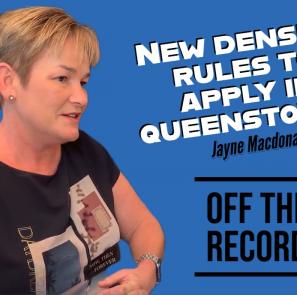Stay up to date with our latest News, Views & Resources by subscribing to our newsletter. We promise to provide you with quality content & the latest industry news.
Going for Housing Growth – Addressing our Housing Crisis
On 4 July 2024, the Coalition Government introduced its plan to fix our housing crisis consisting of five interlocking actions. This article considers the first being the Going for Housing Growth policy.
The six changes cabinet has agreed to under the policy are:
-
The establishment of Housing Growth Targets for Tier 1 and 2 councils;
-
New rules to make it easier for expansion outwards at the urban fringe;
-
Strengthening intensification provisions in the National Policy Statement – Urban Development (NPS-UD);
-
New rules requiring councils to enable mixed use development in cities;
-
Abolition of minimum floor areas and balcony requirements;
-
New provisions making medium density residential standards optional for councils.
Below is a summary of the first three key changes under the policy.
Housing Growth Targets for Tier 1 and 2 Councils
Tier 1 and 2 councils will be required to meet housing growth targets. These targets will apply to 24 councils across New Zealand, including the Queenstown Lakes District. The targets will require councils to “live zone” feasible development capacity to provide for at least 30 years of housing demand at any one time. “Live-zoning” means to provide for housing to be enabled in a plan that is legally operative and in effect. This means it must have passed through all of the RMA first schedule process steps including environment court appeals. This is to be compared with the status quo which only requires councils to “live-zone” feasible development capacity to meet three years demand at any one time.
Comment - infrastructure funding and financing will be key to achieving the outcomes sought under this part of the strategy if the aim of ‘flooding the market’ and driving down land prices and cost of housing is to be achieved.
New Rules for Urban Expansion
The aim here is to ensure growth strategies are more responsive to development opportunities and to enable more housing both in greenfields (new) and brownfield’s (existing) urban areas. With the greenfield opportunities, there is to be a condition that infrastructure costs of new development are covered, in other words, where “growth pays for growth.” Councils should not be able to turn down a development on the grounds that perceived demand is not there, or that the infrastructure costs are too high. In addition, councils will no longer be able to impose rural-urban boundaries in their planning documents, which means they cannot set hard regulatory boundaries that constrain growth.
Comment – The Queenstown Lakes District Plan, like many other RMA plans, contains strategic planning provisions which seek to avoid urban development outside identified urban growth boundaries. This suggests that councils who have avoidance policies associated with urban growth boundaries will need to revisit the same. Minister Bishop has signalled that there is further work to be done on urban expansion given the connection to the government work also being undertaken on infrastructure funding and financing.
Strengthening Intensification Provisions in the NPS-UD
This change relates to requirements around where councils must enable intensification so that capacity is enabled where there is demand and there are connections to business, services, and transportation. The intention is to strengthen density requirements around transport corridors not just the current “rapid transit” networks, clarify terms such as what “walkable catchments” mean and to clarify the rules around “qualifying matters” - noting that councils are not required to implement the intensification provisions in particular areas a ‘qualifying matter’ makes intensification inappropriate in these areas. These are ‘permitted exemptions’ to intensification and include matters such flood risk, heritage values etc.
Comment - these changes are intended to provide for more efficiency and certainty in the implementation of the NPS-UD. They also signal that care will be required to justify on a solid evidential basis any ‘permitted exemptions’.
The government has signalled that these changes will be implemented through amendments to the Resource Management Act and the National Policy Statement on Urban Development, with the requirements expected to be in place by mid-2025. Formal consultation on the detailed design of changes will occur in early 2025.
This article was prepared by our Resource Management and Environmental Law team who are happy to assist with more information about the Going for Housing Growth programme and how it might affect you. You can contact Jayne Macdonald at jmacdonald@mactodd.co.nz or 03 441 0127.

On 4 July 2024, the Coalition Government introduced its plan to fix our housing crisis consisting of five interlocking actions.
Read More
Relationships can be complicated waters to navigate at the best of times, but it can become even trickier when thought needs to be given to relationship property matters.
Read More
Lending money to your children to buy their first home can be a generous and life-changing move, but it’s essential to consider the legal implications before proceeding.
Read More
The Trust Act 2019 outlines the obligations of trustees, and when taking on a trusteeship an individual or company must be aware of the risks involved.
Read More





https://www.youtube.com/watch?v=Ml7nmEmtvSY
Read More
Trusts Act 2019 also affects executors and administrators of wills
Read More
Creditor compromise regime: Another option in insolvency Guest editorial: The economy - tougher times ahead? Love, heartbreak and...death? Make a new will and EPA's when you separate New Incorporated...
Read More
https://www.youtube.com/watch?v=lZ6pC9agrrs
Read More

Senior Associate Scott Donaldson and Senior Solicitor Alice Milne have released episode 3 of their podcast, Off the Record.
Read More
Senior Associate Scott Donaldson and Senior Solicitor Alice Milne have released episode two of their podcast, Off the Record.
Read More
Duncan Anderson, Associate, Mactodd Lawyers, Queenstown
Read More
Senior Associate Scott Donaldson and Senior Solicitor Alice Milne have started a new video podcast where they address issues in law affecting Queenstown businesses.
Read More
Mental health in the workplace Co-ownership arrangements Checking your home is accurately insured Helping your family before you pass away Notifications of privacy breaches increase significantly Post script
Read More


Mann v Paterson Constructions Pty Ltd—Builders' Quantum Meruits Revisited' (2021) 37 Construction Law Journal 207 discusses recent changes to the law in Australia regarding restitutionary claims able to be made...
Read More
Buying off the plans New edition of To Trust or Not to Trust Climate Action Toolbox Post-Covid working world An independent trustee Postscript
Read More

Investment in Farming - A focus on syndicated farm investments The finite supply of water - Water easements Over the Fence - Crown Pastoral Land Reform Bill (submissions open),...
Read More


The government’s Budget, presented by the Minister of Finance the Hon Grant Robertson on 14 May has addressed, in the words of the Minister, “a 1-in-100 year health and economic...
Read More
These helpful checklists will guide you thought some of the most important areas you and your lawyer need to address when purchasing or selling a residential property and also when moving.
Read More
Also includes comprehensive checklists to you don't miss out any important step as well as details on how to protect your assets and when you also need to consider a...
Read More
Not all investments in NZ require consent from the Overseas Investment Office (“OIO”) but like many countries NZ has controls on overseas investment. Certain land is subject to OIO consent.
Read More
This practical guide designed to steer you through the essentials of Family Trusts including: Is a family trust for you? Protection given by a Family Trust. Planning for your life. Duties of trustees and how to run a trust. Costs.
Read More
Our local knowledge, experience and expertise will provide you with the support and advice you need for a successful property purchase, regardless of the size or complexity of the transaction.
Read More
We have produced a practical guide on buying a home or an investment property in New Zealand in Mandarin.
Read More
You’re catapulted into thinking about organising a funeral, whether it will be a cremation or burial and how to organise the day, and then you also need to think about...
Read More

